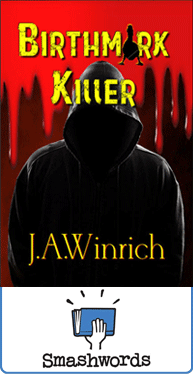Last time I talked about researching. Will give you some sites and more.
First, last clichés:
Look on with a jaundiced eye—Seeing only the bad side or faults. This phrase is based on the old belief that to a person suffering from jaundice (a condition in the skin and whites of the eyes where they turn yellow), everything looks yellow. See John Webster, The White Devil (1:2) [1612]. This term survived the belief and was a cliché by 1800 or so.
In the doldrums—Inactive, stagnant, “down in the dumps”, depressed. The origin is uncertain, but it started being used in the early 19th century both for the maritime doldrums, a belt of calms and light winds north of the equator in which sailing ships often found themselves becalmed, and for a feeling of depression. Frederick Marryat used it in Jacob Faithful (1835).
Have a lot on my plate—Have more than enough to cope with or worry about. Originated in the 1920s and transferred the image of an overcrowded dinner plate to a very full agenda. R. Simons used it in Houseboat Killing (1959).
Don’t swap horses in midstream—Don’t change leaders or methods in the middle of a crisis. Originated a quarter of a century earlier, the expression became famous through its use by President Lincoln in 1864 when he learned that his re-nomination for a second term was being backed by the National Union League. Several versions of his speech were recorded, some having it change and others swap.
So, how many did you find last time?
My last blog talked about researching, but I didn’t do it up brown. I forgot to mention the research sites that I use, even though I have them posted on the side of my blog page. So, I will give you some sites to visit.
Want to know what a word means or phrase? See: etymonline.com
Need a forensic expert? Try dplylemd.com
Your writing needs to be picture perfect. There will always be someone out there that knows more about what you are trying to say, so you want to make sure you research it. Interview professionals, google your subject, find other sites that will help you. When I was growing up, we had to go to the library, look up what books they had, and hope it was available when we needed it. However, now, it is so easy to research. The internet has opened up so much more for authors, there is no excuse to not get it correct.
So like I said before: Research is important to you and to your readers. Don’t let them down.
Keep Writing,
Julie



